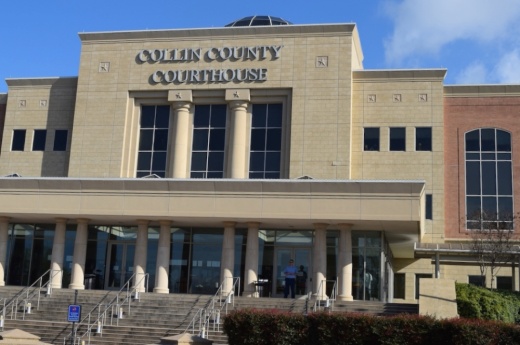The county received about $201 million in federal funding last year for the purposes of pandemic relief. County commissioners approved the use of these funds in August to be used for three projects that support public health and “people with barriers to services,” according to the county’s 2021 recovery plan.
One of these projects is a $54.8 million health care services building and parking garage located between the administration building and county courthouse on Bloomdale Road. The parking garage is in the design phase, and design for the health building is scheduled to start in 2023, the recovery plan stated.
If the county remains on schedule, the parking garage will be complete by spring 2024, and the facility will open in late 2025.
One of the main goals of the project is to expand the capacity of the county’s health care services, which operate out of a 76-year-old building on Hwy. 5, just north of downtown McKinney. The current building has 21 medical rooms, 18 offices and three meeting rooms, per the recovery plan.
“Expansion beyond this existing space is not possible and is further restricted by the already limited parking,” the report said.
The new building is expected to serve as a vaccination hub and provide “sufficient operational, storage, meeting and office space” to meet the county’s needs.
Upon an assessment of services offered to “vulnerable populations”—including those on government assistance and people with existing health conditions—the county determined that several programs would benefit from the expansion.
- Immunizations Clinic: provides childhood and adult vaccines at reduced or no cost to uninsured or under-insured residents.
- Employee Health Clinic: provides COVID-19 testing and vaccines for county employees.
- WIC Clinic: provides food and nutrition assistance to children under age five, postpartum mothers up to six months and pregnant and breastfeeding women who are enrolled in Medicaid or SNAP.
- Epidemiology Department: investigates COVID-19 outbreaks determined to be at elevated risks by the Texas Department of State Health Services
- Public Health Emergency Preparedness Team: works with stakeholders that serve vulnerable populations to ensure COVID-19 vaccine plans are being implemented smoothly.
- Tuberculosis Clinic: serves residents who have tuberculosis and completes contact tracing.
- Sexually Transmitted Disease Clinic: provides low-cost STD testing and treatment.
- Substance Abuse Clinic: evaluates, refers and provides education for residents.
- Indigent Health Clinic: serves people who are at or below 100% of the federal poverty line.





